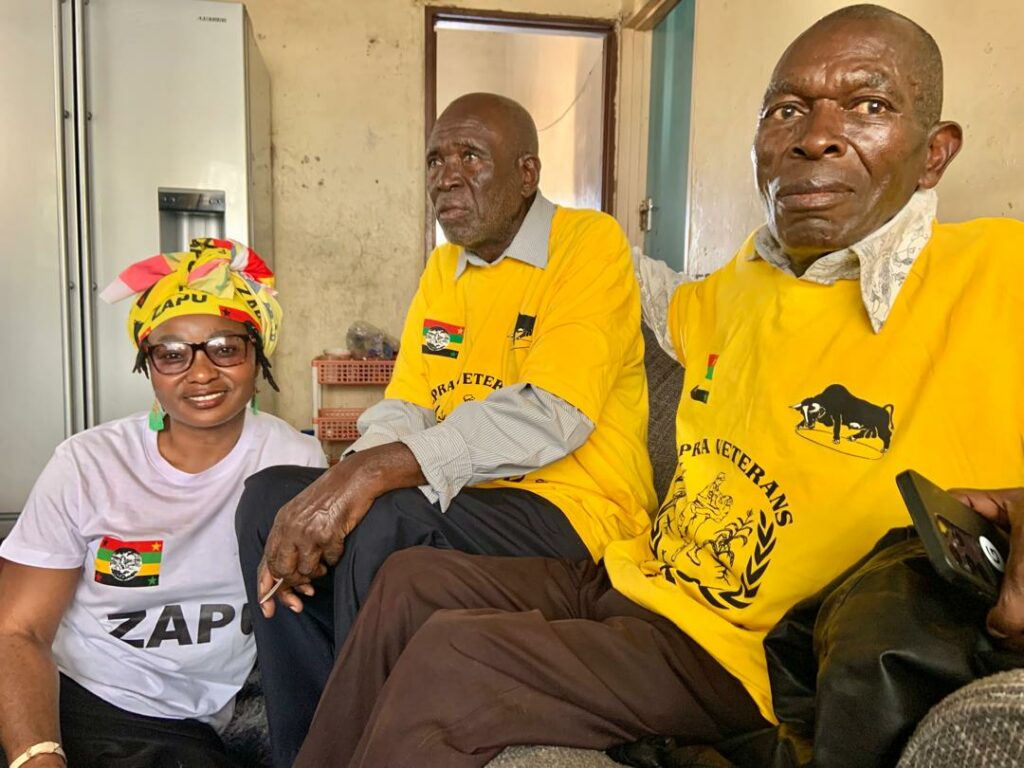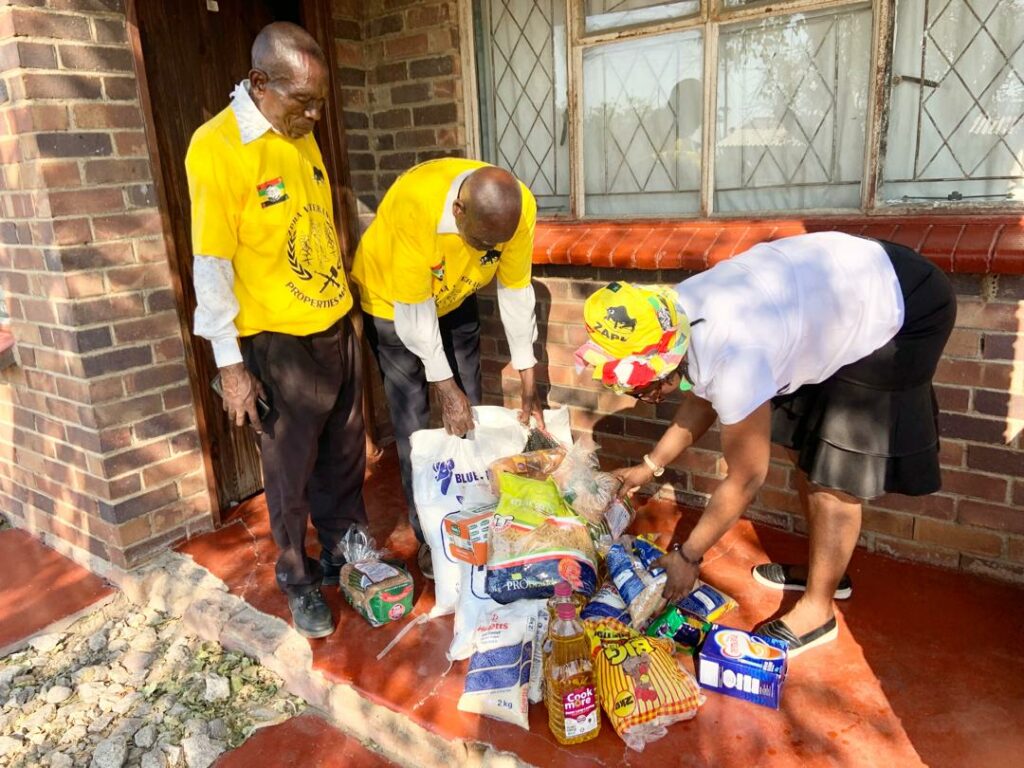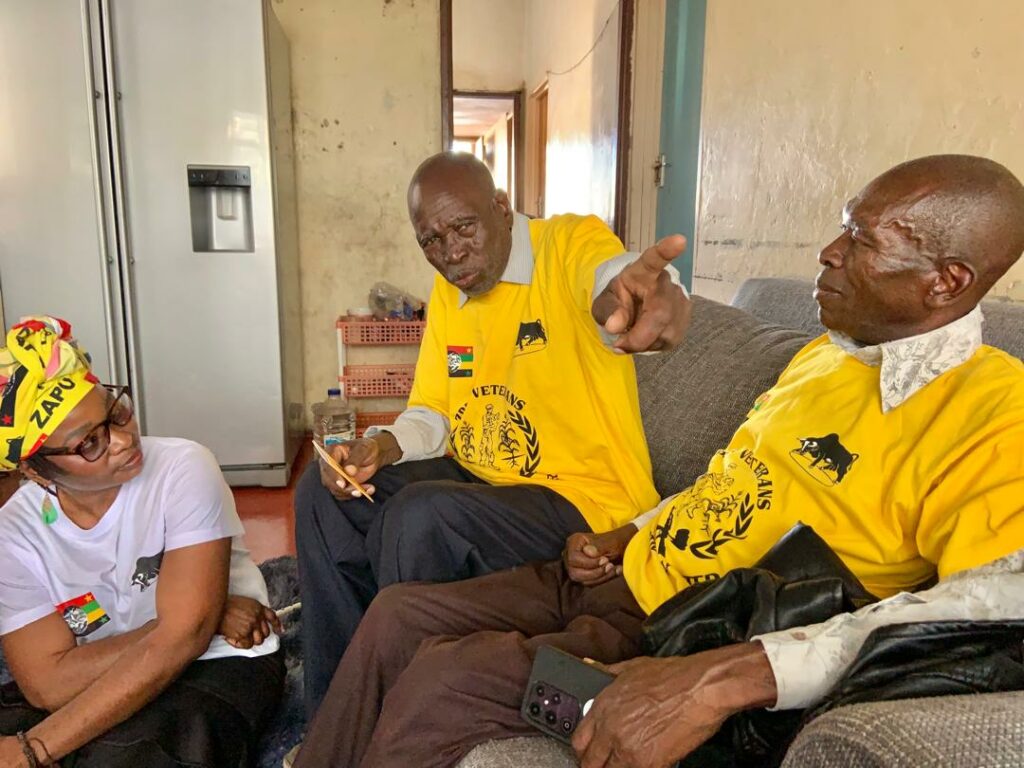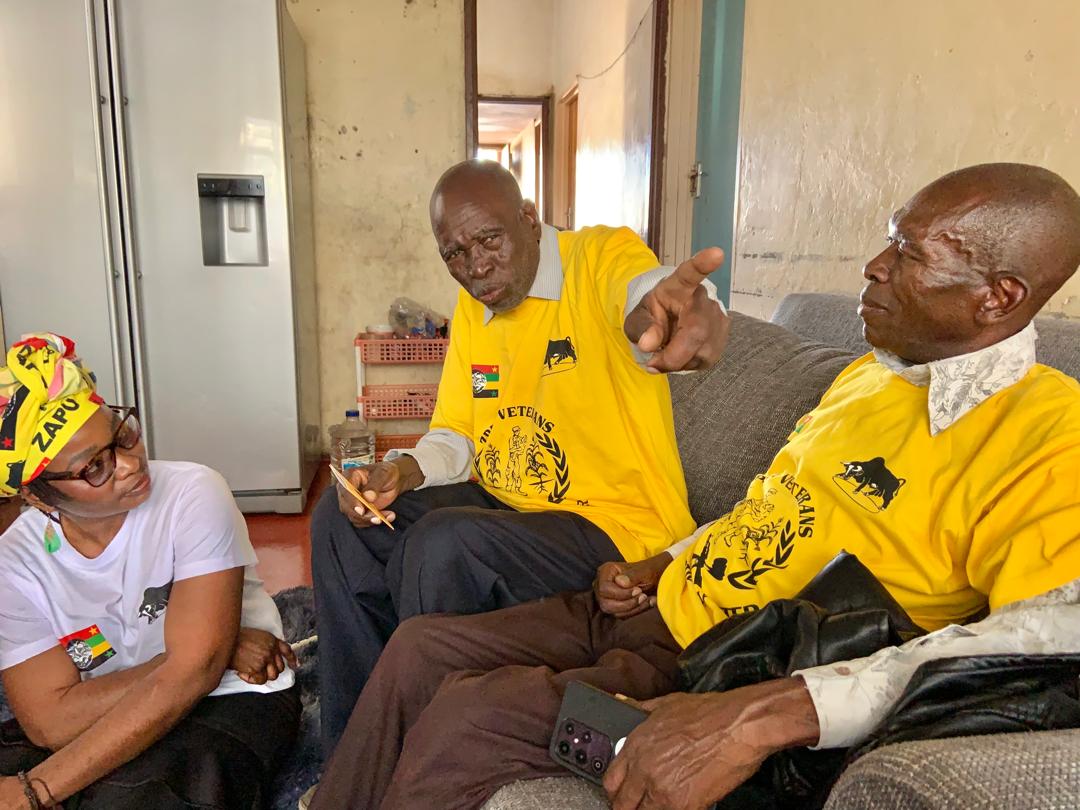ZAPU’s Matabeleland South province paid tribute to liberation war hero Moffat Hadebe at his home in Magwegwe North, Bulawayo, on Wednesday, acknowledging his significant contributions to Zimbabwe’s independence.
Despite his pivotal role in the fight against colonial rule, Hadebe’s social status starkly contrasts with the sacrifices he made during the armed struggle.
Representing the ZAPU provincial leadership, Secretary Andrew Tshuma and party Treasurer Sikhanyisile Moyo visited the 87-year-old veteran to honour his heroic efforts. Hadebe is renowned for firing the first gunshot in 1964, marking the start of the armed struggle against the oppressive white minority regime.
However, Hadebe has rarely been acknowledged for his contributions, with concerns that the magnitude of his efforts may fade from public recognition.
Formal acknowledgement finally came in 2021 when Hadebe, alongside five other liberation icons—including John Maluzo Ndlovu, Gibson Mayisa, and the late national heroes Abraham Nkiwane and Jane Ngwenya—received honours in the Grand Officer of the Zimbabwe Order of Merit category from President Emmerson Mnangagwa.
During the visit, Tshuma, a former ZPRA fighter, praised Hadebe’s pivotal role as a commander in the liberation struggle, particularly in the Sipolilo battles, where he led joint forces from the Zimbabwe People’s Revolutionary Army (ZPRA) and South Africa’s Umkhonto weSizwe (MK).



“Hadebe was a detachment commander of the Rest Force that fought in Sipolilo, leading both ZPRA and MK forces in battle,” Tshuma noted. “After independence, when it was discovered that Hadebe had commanded these critical battles, he was unjustly imprisoned at Khami Prison, missing out on the demobilization exercise that benefited other fighters.”
Tshuma highlighted the ferocity of the Sipolilo battles, explaining that the Rhodesian government introduced the ‘Call Up’ system, compelling white schoolboys to undergo military training. Many were deployed to Sipolilo, where numerous soldiers perished in battle.
“Hadebe was labelled a notorious terrorist for his leadership in these operations,” Tshuma added.
Moyo, who accompanied Tshuma, expressed her admiration for Hadebe’s contributions to the liberation struggle. “When I learned about Hadebe’s role, I felt it was important for us, as a province, to honor him in our own way,” she said.
“Meeting him has been a deeply emotional experience. It’s one thing to read about heroes, but another to meet them in person. As a young woman in politics, his story gives me courage and strength.”
Moyo emphasized the province’s commitment to ensuring Hadebe’s legacy is recognized throughout the country and that he receives the care he deserves. “We hope the entire country learns from him and appreciates the sacrifices he made,” she said.
During the visit, the ZAPU delegation also presented Hadebe with grocery items donated by Dr. Bekithemba Bulle, a member of ZAPU’s National Executive Committee based in Australia, as a gesture of appreciation for his contributions to the liberation war.
Born on April 12, 1937, in Mawaza, Hadebe recounted his early life and the path that led him to join the liberation struggle. After schooling in Mawaza and Tshelanyemba, he moved to Bulawayo, where he briefly worked for ZUPCO before finding motivation in the rising unionist movement of the late 1950s.
“After school, I came to Bulawayo and worked for ZUPCO. During my time there, unionism started thriving in 1959. I didn’t take an active part; I was still young then. In 1960, I went to Harare and became a driver for Dragon Films,” he recalled. “I was staying in Highfields, a melting pot of all the liberation activists you can think of—Chikerema, Munodawafa, the Malianga Brothers, and others. This was a hotbed of political activity, and as young men, we developed an interest in the movement.”
Hadebe shared that during his time as a driver in 1960, he experienced a strike led by nationalist leaders, which resulted in his dismissal for failing to report to work.
“I returned home to Mawaza and discovered that people didn’t know much about politics,” he said, recounting how this realization led him to mobilize his community against the colonial government’s oppressive cattle inspection program.
“I doubted whether the whites were truly qualified veterinary personnel. They would demand that Black people bring their cattle to the local dip tank for disease checks or to count the cattle for their ridiculous livestock census. Villagers would start driving their cattle from their homes as early as 2 AM, yet the white inspectors would arrive at 2 PM. I approached the community to resist this.”
Hadebe recounted mobilizing young people to ensure that by the time the ‘white vet’ arrived, all the cattle and their owners would be gone. “This was our way of resisting the colonial government at the community level while using the opportunity to alert people about the nationalist cause,” he said.

